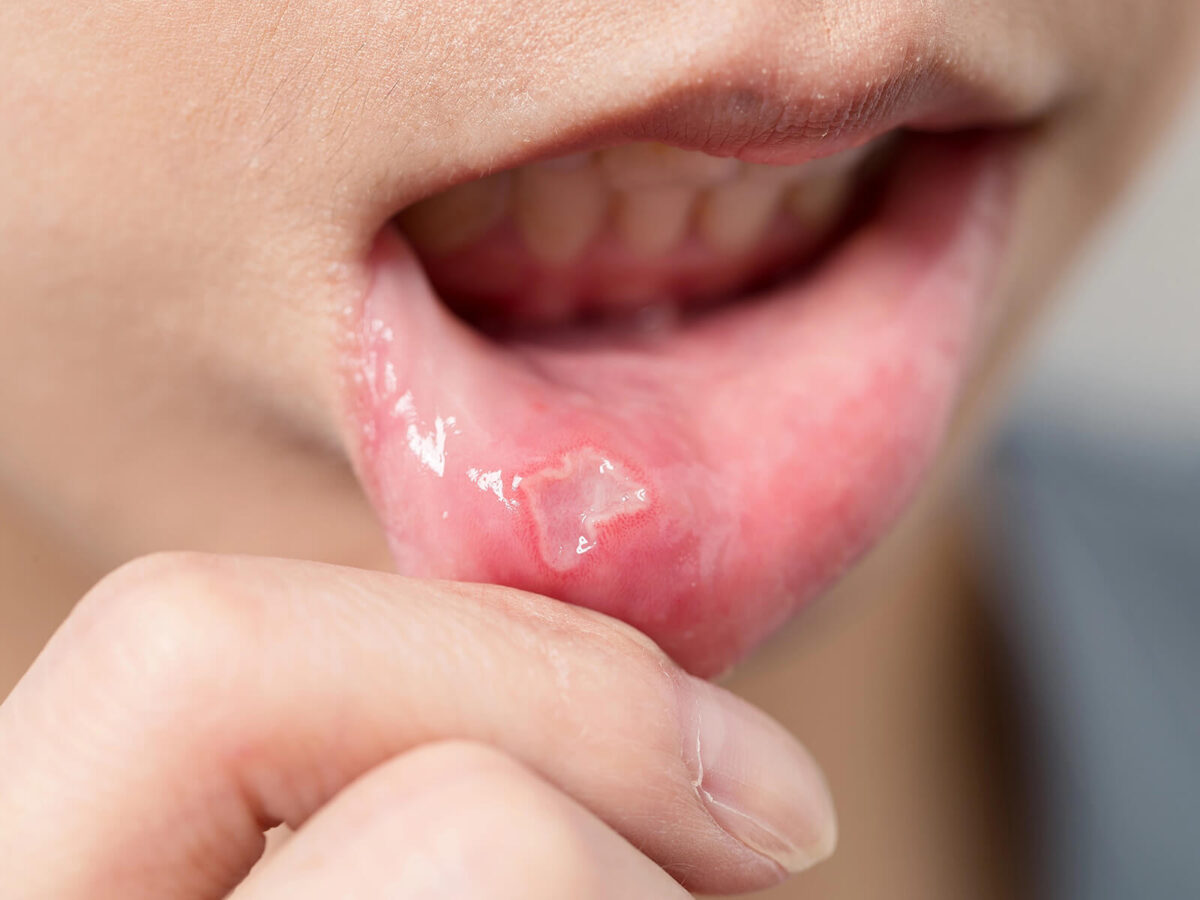Blog
Dental hygiene tips for healthy teeth & gums

Everything You Need To Know About Mouth Ulcers
A mouth ulcer is an open and infected area on the tongue, inner cheek, or gum. They can be minor or major, and the manifestations depend on the type of ulcer present. They are typically a pale pink or very light yellow, and the skin around them is typically red and swollen. Although they typically do not require medical treatment, they could be painful and last for about a week or two. Eating food and beverages or brushing teeth can be uncomfortable and even painful.
What are mouth ulcers?
Mouth ulcers occur mainly on the inner side of lips and cheeks but may also involve the tongue and gums. They are red, slightly raised, round, or oval welts. They may be horizontal or vertical and can expand in dimension before escaping from the view. It involves an erosion of the mouth lining, producing stinging pain, especially when eating, drinking, or even brushing your teeth, depending on where the mouth ulcer is located.
Types of mouth ulcers
There are many different types of mouth ulcers, including:
- Canker sores (aphthous ulcers): These are the common types of mouth ulcers. It is still being determined what causes them or why they occur more frequently in some patients than others. They range from simple injuries like accidentally biting the tongue/cheek/ or eating acidic fruits/to stress.
- Oral lichen planus: This condition can lead to itchy rashes and lacelike, white sores inside your mouth. Oral lichen planus is an immune response, and its prevalence is highest in females aged 50 years and above.
- Leukoplakia: This condition results in white or grey lesions on the inner part of your mouth. It occurs due to increased cell division that leads to the formation of tumorous growths. Smoking and chewing tobacco are some of the causes since they cause constant irritation to the lips.
- Erythroplakia: Erythroplakia is another effect of smoking or chewing tobacco in the mouth. Erythroplakia causes red patches and commonly develops behind the lower front teeth or under the tongue. Unlike leukoplakia lesions, erythroplakia patches are generally premalignant or malignant.
- Oral thrush: This fungal infection occurs inside your mouth due to an overgrowth of the Candida albicans yeast. It is often experienced after being treated with antibiotics or when the body’s immune system is weak. Oral thrush involves the formation of red and creamy white patches and sores in the mouth.
- Mouth cancer: Oral cancer lesions may present as red or white mouth sores or ulcers. Unlike other regular sores, these sores will not just heal by themselves. If you have been having a mouth ulcer that has not healed for three weeks, consult your health care practitioner.
What are some signs of a mouth ulcer?
Oral ulcers are often recognizable and should not be much of a problem to diagnose. They occur primarily on the gum, tongue, inner cheek, inner lips, or under the roof of the mouth.
Mouth sores are typically:
- Red around the edges.
- White, yellow, or gray in the middle.
You can only be diagnosed with a single ulcer, or there could be many of them. Other symptoms could include:
- Swelling around the ulcers.
- Stinging when brushing the teeth;
- Continuous and aggravated pain, especially when consuming spicy, salty, or sour foods.
You should see a dentist if these situations worsen with time. Rio Bravo Dentist NM is the best in town for testing Ulcers.
What causes mouth ulcers?
Mouth ulcers are most commonly seen when some mucosal culture eliciting or the mucous membrane of the oral cavity is injured and cannot heal. These are referred to as ‘traumatic ulcers.’ Common causes include:
- This may be unintentional or become a habit to bite the cheek, lips, or tongue.
- Trying uncomfortable dentures or braces that scrape
- The other aspect could be if one or multiple teeth are jagged, chipped, or cracked.
- Over-vigorous tooth brushing
- Scalds, from taking food or beverages at the wrong temperature
Some mouth ulcers are caused by underlying issues, like:
- A hormonal change, for instance, occurs during the adolescent stage or pregnancy.
- One of the consumables, for example, vitamin B12 or iron.
- An interaction with medication
- Avoiding smoking (ulcers may appear within the first weeks of therapy)
What should I do to treat a mouth ulcer?
Sometimes, mouth ulcers are minor and can be treated at home without seeing the dentist or general practitioner. Usually, they recovered on their own.
Consult a pharmacist if you have a mouth ulcer and find it painful or uncomfortable. The dentist may suggest a protective paste for your teeth or a pain-relieving gel to help with your sore mouth.
Your pharmacist may also suggest over-the-counter mouthwashes and lozenges that you can use. None of the above can treat your ulcer, but it gives you some comfort to manage it while it is healing.
Most of the methods to manage a mouth ulcer are non-medical and include:
- Applying a soft brush for that soft-bristled toothbrush
- It may be acceptable to upturn the toothpaste brand- it could be the root of the problem
- It is required to abstain from spicy, salty, and acidic foods and beverages.
- Drinking through a straw
Prevention
It has been discovered that regular and proper cleaning of the mouth by brushing and flossing the teeth may reduce the chances of developing mouth ulcers.
Mouth ulcers have no known cure and are common in the mouth for an individual’s entire life.
While getting an ulcer is sometimes unavoidable, there are preventive measures that people can take to minimize the severity or the frequency of occurrence of ulcers.
Some prevention methods include:
- speaking to a doctor about switching from drugs that are associated with the formation of ulcers
- refraining from foods that can either precipitate or exacerbate the condition
- Practice oral hygiene by brushing and flossing the mouth daily.
- Refraining from engaging in activities that led to outbreaks in the previous years
Fortunately, mouth ulcers usually do not require any treatment, and the pain usually subsides within 2-3 days. Some ointments and solutions for pains and swelling are not necessarily needed for a person to recover from the ailment. People should try not to get stressed and anxious as much as possible to avoid such a situation in the future. If you are anxious and want to visit a dentist, then Rio Bravo Dental will greatly help.


